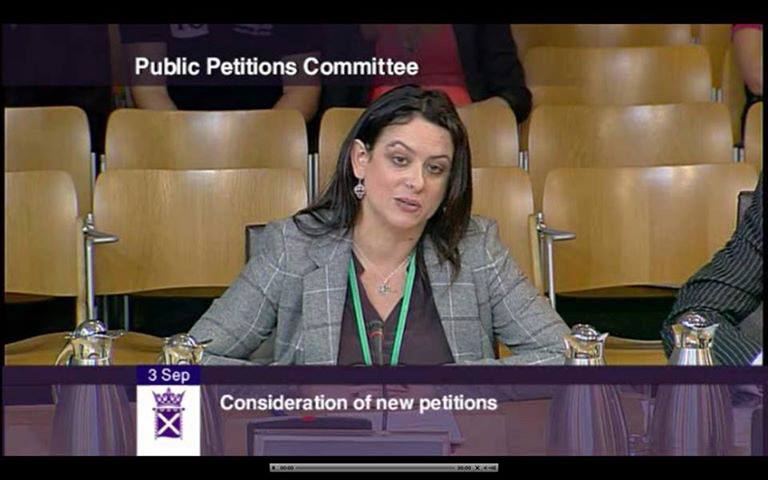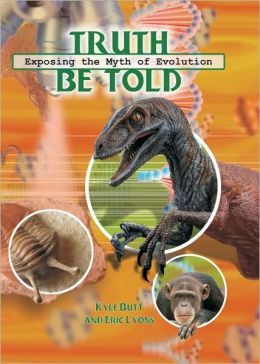by Robert Canning
On Monday 2nd September the mother of a five-year-old boy at Kirktonholme Primary School in East Kilbride posted a message on the page of the Facebook group Secular Scotland, which is owned by the Scottish Secular Society. She and her husband, both members of the group, were worried and angry about a pair of books that their son had brought home, titled “How Do You Know God Is Real?” and “Truth Be Told: Exposing the Myth of Evolution”. They were both written by an American evangelist called Kyle Butt and had been handed out to their son’s class by a school chaplain from the East Kilbride branch of The Church of Christ.
The intentions of these books are summarised in blurbs which can be found online. “How Do You Know God Is Real?” “explores simple reasons why we can know that God exists. It will satisfy children’s curiosity and equip them to be able to defend their personal belief in God.” “Truth Be Told” “was written and designed to prepare and equip students to deal with false evolutionary assumptions that often make their way into many science books used in schools. This book will excite, encourage, and inform students who want to know the truth. In the end, that truth leads the honest student to the fact that this magnificent universe did not evolve, but rather was created by an all-powerful God.”
The boy’s parents had sent him to Kirktonholme – a non-denominational school – to be educated: to gain an understanding of the real world around him, and its past, and to be taught skills useful for living in it. Yet, along with the rest of his class, he had spent some of that afternoon, not being educated, but being enticed to believe in a religion which his parents do not follow, and without their knowledge.
Telling children facts about religions can, of course be educational, since religions are a real and massively influential aspect of the human world, but to present the unproven beliefs of one religion as though they were fact has no educational value. The anti-evolution tract “Truth Be Told” is worse than non-educational: it is anti-educational and counter-factual, claiming, for example, that the earth is only 6000 years old and that humans used to live alongside dinosaurs and use them as beasts of burden. I am not suggesting, like Thomas Gradgrind in Dickens’s novel “Hard Times”, that children should be fed nothing at school but facts. Fantasy literature is a valuable encouragement to reading, but part of its appeal is that children clearly recognise it as an imaginative excursion from reality. The popular “Dinotopia” series of children’s books also portrays humans and dinosaurs happily co-existing, but there is no attempt to present its imagined world as fact. “Truth be Told”, on the other hand, masquerades as a science book, and dismisses evolutionary theory as a lie. A class of five-year-olds have therefore been encouraged, by a school chaplain unqualified in the subject, to disbelieve what their qualified teachers will later present as respectable science.
The boy’s parents decided to take immediate action to find out the extent and nature of The Church of Christ’s activities at Kirktonholme. On speaking to one of the school heads, the father was further dismayed at seeing how unconcerned she appeared about the content of the two books, and then other disturbing information came to light. The church had posted promotional videos on Youtube suggesting that they were the only true representatives of Christianity in Scotland, and it was their mission to save the rest of the country. They had been active at the school for eight years, but many parents were unaware of how large a part they played and how much time they spent with the children. They had a similar role in another local school for children with special educational needs.
Readers of this paper will probably be aware of the subsequent complaints made by a number of parents and the termination of the Church of Christ’s relationship with the schools. This is unlikely, however, to be the end of the story, for the Kirktonholme case points up a wider problem with which The Scottish Secular Society is presently much concerned, and that is the privileged position assumed by religion in state-funded schools. The day after the story broke on its Facebook group page, the society presented its first petition to the Scottish Parliament. Our petition PE01487 proposes that state schools should no longer enrol pupils by default in religious observance or any other activities in which a set of specifically religious beliefs is presented as truth, including visits by chaplains and church representatives. Instead, parents should be asked each year whether they wish their children to take part in such activities, and those children whose parents who do not opt in will be offered alternative activities of an educational nature.

Caroline Lynch Chair of Scottish Secular Society
Two parents in the group started this petition after experiencing difficulties with opting their children out of religious observance. In the course of their research they heard from other parents throughout Scotland who had been similarly frustrated, and discovered that many schools did not even make parents aware of their right to opt out. During the presentation of the petition, they were able to cite the Kirktonholme case as an example of what can happen when parents are not adequately consulted and informed. Now that it has been more widely reported, we hope that parents will be encouraged to take a greater interest in what goes on in schools under the banner of religion, will ask whether all of it is appropriate for their children, and will support our proposal that parents be offered a real choice in the matter.
Robert Canning 2013


